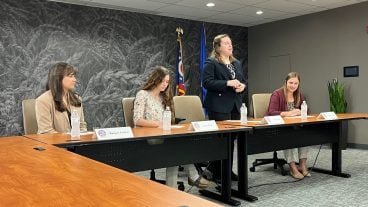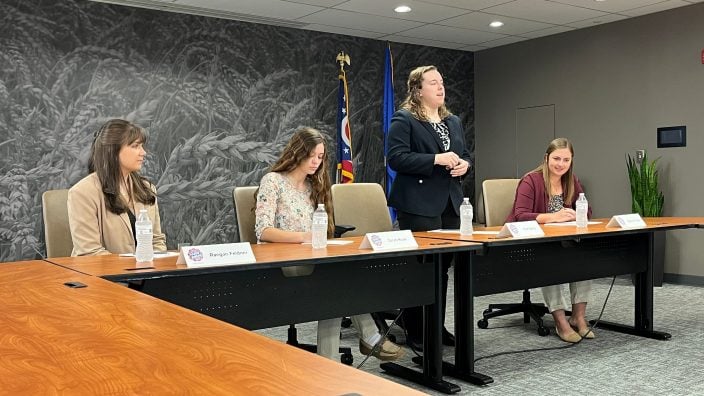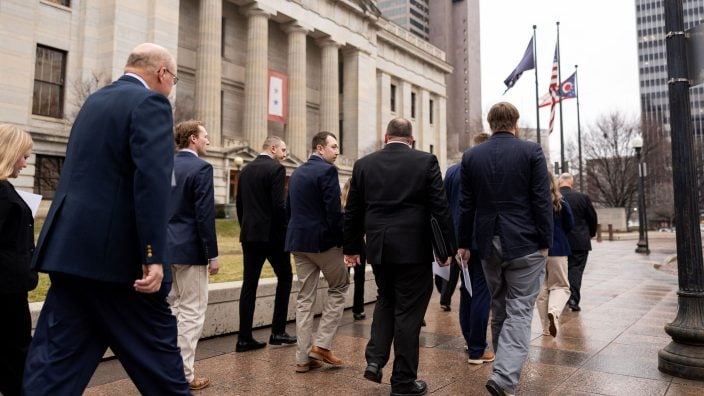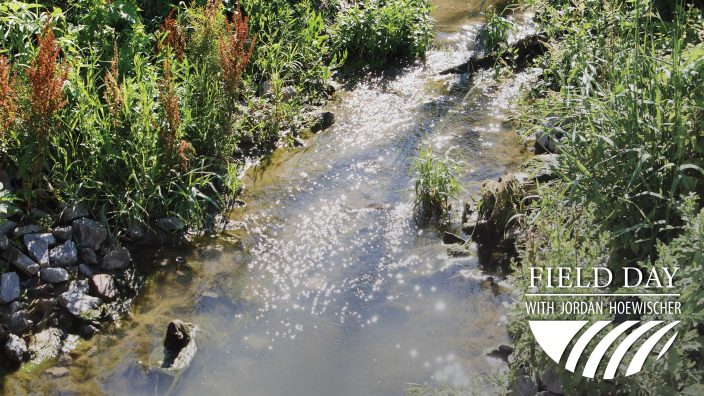Applications for Ohio Farm Bureau Health Plans now available
Members have three ways to apply: contacting a certified agent, calling 833-468-4280 or visiting ohiofarmbureauhealthplans.org.
Read MoreIn the latest edition of Field Day, Ohio Farm Bureau’s Director of Water Quality and Research Jordan Hoewischer talks with Dr. Robyn Wilson, associate professor of risk analysis and decision science at Ohio State University. Wilson’s research includes studying decisions based on patterns of human behavior and involves the science of agricultural decision-making in the Western Lake Erie Basin. Wilson grew up on a farm in northwest Ohio, where the family farm is still in operation.
“Over my career I’ve seen a big shift and just legitimate interest in social science,” Wilson said. “(There is a) legitimate realization that…if we keep running around ignoring that piece of the puzzle then we’re not going to solve a lot of these problems and we’re going to put out policies and solutions that aren’t going to be effective.”
This is the fourth installment of Field Day with Jordan Hoewischer, an ongoing series of conversations with industry experts and leaders who are helping to shape and secure the future of Ohio’s ag industry for generations to come.
Following are some highlights from Episode 4. A transcript of the conversation can be found here.
A: We’re in the middle of our fourth survey right now in the Western Lake Erie Basin. One of the driving questions of that project was whether or not we could offset the impacts of climate change on Lake Erie through changes in farmer behavior. The idea behind that is that what’s going on in Lake Erie is a function of two things. It’s a function of nutrient runoff from agricultural landscapes. It’s also a function of changing weather conditions. So it’s a function of bigger more variable rain events and warmer lake temperatures in the summer. So the logic is that those two pieces are probably equally responsible in some form or another. But if the public doesn’t support policies that are going to support farmers and farmers don’t respond the way that people want them to respond, none of that matters.
A: It’s probably not surprising that even though we’re 90-plus percent in terms of positive awareness, education, concern, willingness for a lot of things, we’re hovering at about 50 percent of farmers who say they could actually do this work. I can’t blame them. We have some improvements to do in the science, where we honestly don’t know the answers to some of the questions yet because these are complex systems. In some cases we do know more, but the messages haven’t been as clear as they need to be and so that’s more of a communication challenge. You could also have all kinds of willing people who want to do a practice but they just quite literally cannot because either it’s cost-prohibitive, they don’t have access to the equipment or the window in which it can be done by commercial applicators is not big enough to be done for everybody.
A: It’s great. It probably makes what I have to say something people are more willing to listen to because they feel like I at least know where they are coming from. I grew up in a farm environment and interact with farmers on a regular basis. I’m not an outsider.


Members have three ways to apply: contacting a certified agent, calling 833-468-4280 or visiting ohiofarmbureauhealthplans.org.
Read More

Collegiate Farm Bureau serves as a connection to current industry professionals and equips the next generation with the essential tools and resources needed to excel in their careers.
Read More

Ohio Farm Bureau members met one-on-one with state legislators and staff to discuss policy priorities impacting Ohio’s farms and rural communities.
Read More

Legacy nutrient deductions enable new farmland owners to claim deductions on the nutrients within the soil on which healthy crops depend.
Read More

Farmers, agribusinesses and community members are encouraged to nominate their local fire departments for Nationwide’s Nominate Your Fire Department Contest through April 30.
Read More

Introduced by Sen. Paula Hicks-Hudson, SB 120 would establish the Urban Farmer Youth Initiative Pilot Program.
Read More

Gases, vapors, and fumes can all create risk. How can we measure and protect ourselves from them?
Read More

The Ohio Farm Bureau’s Young Agricultural Professionals State Committee has named its 2026 leadership and the individuals who will be serving on the state committee for 2026-2028.
Read More

The Ohio Farm Bureau Foundation has multiple scholarships available to Ohio students from rural, suburban and urban communities who are pursuing degrees with a connection to the agricultural industry.
Read More

With 100% bonus depreciation now permanent, farmers can deduct the full cost of a new agricultural building in the year it’s placed in service.
Read More